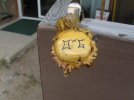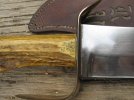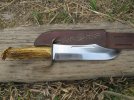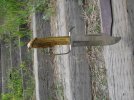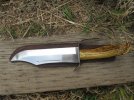- Joined
- Dec 2, 2005
- Messages
- 71,799
For me, a handmade knife is only that if the blade has been ground by hand. The blade doesnt have to be forged, stock removal is fine, but the knife should be constructed by hand, rather than simply being assembled at the bench. Even if the blades are machine-ground, but the knife is otherwise put together by hand, I dont consider it a handmade knife, benchmade perhaps or hand-assembled, but not handmade. Certainly in Sheffield, some makers are selling so-called handmade knives, which have blades which are machine-ground en masse elsewhere, and elsewhere in England factory-made blades are fitted with handles and sold as handmade. Nor do I think this is something that is unique to the UK.
Im just interested to know what you folk think about this, and how you yourself define handmade. For me its important that what I regard as the traditional meaning of handmade is retained if the work of cutlers who adhere to this interpretation is not to be de-valued by what amounts to me to be an act of linguistic laissez-faire, or even of fraud.
Im just interested to know what you folk think about this, and how you yourself define handmade. For me its important that what I regard as the traditional meaning of handmade is retained if the work of cutlers who adhere to this interpretation is not to be de-valued by what amounts to me to be an act of linguistic laissez-faire, or even of fraud.

